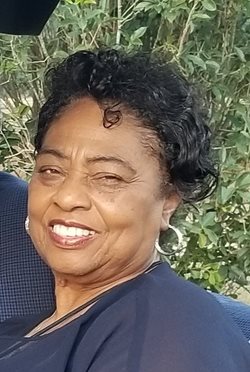Shirley Sherrod is a familiar name to those who know about community land trusts (CLTs), entities where a nonprofit corporation owns the land, keeping it affordable, while community members own the homes that rest upon it. Sherrod, who is speaking Wednesday, Feb. 17, during a NeighborWorks America’s symposium Shared Equity Housing: Creating Lasting Affordability and Community Homeownership, was part of the very first land trust.
 Sherrod and her husband, Charles, founded New Communities Land Trust in 1969, bringing together Black farmers in Georgia during the civil rights movement. After a drought and racist policies that kept farmers from getting what they needed in terms of equipment and loans, the land trust entered foreclosure. A class action lawsuit in the 1990s – settled in 2009 – helped farmers get funding to restart it again, on a plantation in Albany, Georgia.
Sherrod and her husband, Charles, founded New Communities Land Trust in 1969, bringing together Black farmers in Georgia during the civil rights movement. After a drought and racist policies that kept farmers from getting what they needed in terms of equipment and loans, the land trust entered foreclosure. A class action lawsuit in the 1990s – settled in 2009 – helped farmers get funding to restart it again, on a plantation in Albany, Georgia.
Sherrod was appointed by President Obama to serve as Georgia State Director of Rural Development in 2009. She was forced to resign a year later, after Andrew Breitbart, a right-wing blogger, edited the video of a speech she had given to make her sound racist. Apologies followed when a recording of the original speech was played, in proper context, and Sherrod was offered another position at the USDA. She declined the job and returned to continue her work with CLTs and other start-ups.
Currently, Sherrod serves as executive director for the Southwest Georgia Project and vice president of development for New Communities at Cypress Pond. She also serves on several boards. NeighborWorks asked her five questions about the role of CLTs.
NeighborWorks: What was the role of your community land trust during the Civil Rights Movement and why was it so vital at that particular time?
Shirley Sherrod: During the Civil Rights Movement, our role was to develop a system of land ownership that prevents foreclosure and loss of land. This was basic to large scale economic and political growth and security for Black people. Creating the first Community Land Trust, offered an evolution from civil rights to economic rights that is community controlled. It also offered space where African Americans could influence how the local community is structured.
NeighborWorks: Why is a land trust a good tool for advancing racial equity?
Sherrod: A land trust is a good tool for advancing racial equity because it is controlled by the people who benefit from its services and it offers an alternative to a system that is inherently racist and discriminatory. When we were denied resources in 1970, due to the racist system, local people worked to keep our efforts alive. We struggled but others saw the work and determination of the people and stepped in to help. This highlights the need for community controlled alternative financing.
NeighborWorks: In your experience, how does a land trust help promote social and community change?
Sherrod: A successful or effective land trust is community controlled. It is the only way you can promote sustainable community change. It brings the community together around a common agenda and helps to develop and promote leaders.
NeighborWorks: How does collaboration with organizations like NeighborWorks further your work?
Sherrod: Collaboration with organizations like NeighborWorks offers space for sharing ideas, successes and strategies and can be key to building networks across state and regional borders.
NeighborWorks: Why is it important for residents to have a stake in their communities? And how do communities benefit from more resident homeowners being vested in the community?
Sherrod: It is important for residents to have a stake in their communities because this is how you achieve sustainable, structural change. Community involvement by residents/homeowners can lead to pride in community but also a bond of caring that promotes community togetherness that can affect other areas of the lives of residents, including, for example, education, criminal justice, and economic development.
02/17/2021

